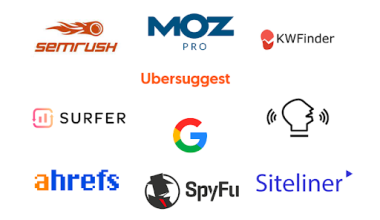In the current digital environment, affiliate marketing has become a potent tool for companies looking to increase sales and attract new customers. Businesses can use a vast network of influencers, bloggers, and content creators to drive targeted traffic and create money by collaborating with affiliates who promote their goods or services.
But creating a fruitful affiliate marketing program necessitates thorough preparation, implementation, and continual optimization. In this post, we’ll lay out a step-by-step process for assisting you in creating an affiliate marketing program that will work for your company and increase your chances of success.
Step 1: Identify Your Goals and Audience:
Prior to beginning affiliate marketing, it’s critical to establish your objectives and comprehend your target market. Think on the precise results you want to achieve, such as boosting revenue, raising brand recognition, or increasing website traffic. Identify the affiliates who will be most effective at attracting and interacting with your desired consumer profile.
Step 2: Find the best affiliate network and choose it:
For your program to be successful, partnering with a dependable and recognized affiliate network is crucial. Conduct in-depth research to find networks that are compatible with your industry, have a large audience, and have reliable tracking and reporting tools. To make an informed choice, compare the commission schedules, payment schedules, and support services offered by various networks.
Step 3: Create Entertaining Affiliate Offers
You must develop enticing deals that benefit both the affiliate and the clients they suggest if you want to draw affiliates. Create appealing compensation schemes, special offers, bonuses, or other incentives to encourage affiliates to market your goods. Make sure your offers are compelling enough to stand out from those of your rivals.
Step 4: Produce Top-Notch Marketing Materials
Give your affiliates a selection of expertly created marketing materials to help them promote your goods and services. Banners, text links, product photos, email templates, social media content, and other things could fall under this category. Make sure the contents are optimized for conversions, visually appealing, and consistent with your brand identity.
Step 5: Find Affiliates and Onboard Them:
Contact prospective affiliates who fit your target market and have a strong web presence. Engage in individualized marketing and spell out the advantages of signing up for your program. Once you’ve attracted affiliates, make sure they have a thorough understanding of your program and can effectively market your products by giving them thorough onboarding materials, instructions, and training.
Most Popular Affiliate Platforms You Should Know
There are various well-known affiliate platforms that provide a wide choice of goods and services for affiliates to promote when it comes to affiliate marketing. Some of the most well-liked affiliate networks that both companies and affiliates use are listed below:
Amazon Associates: One of the biggest and most well-known affiliate networks is Amazon’s associate program, also known as Amazon Associates. Affiliates can make money by sending customers to Amazon through their special affiliate links because there are millions of products available for advertising.
ClickBank: ClickBank is a well-known affiliate marketplace with a focus on digital goods like software, e-books, and online courses. Affiliates can look through a wide range of products in numerous niches and can make money from every transaction they make.
ShareASale: ShareASale is a well-known affiliate network that links affiliates with many different merchants in a variety of sectors. Many affiliate marketers use it because of the user-friendly interface, sophisticated tracking capabilities, and prompt rewards it provides.
Commission Junction Affiliate: CJ Affiliate is one of the oldest and largest affiliate networks, offering a comprehensive platform for both affiliates and marketers. It has a large network of well-known companies and extensive reporting and tracking services to help affiliates optimize their campaigns.
Rakuten Affiliate Network: Formerly known as Rakuten LinkShare, Rakuten Affiliate Network is a global affiliate platform that connects affiliates with a diverse range of advertisers, including big brands. It provides a user-friendly interface, extensive tracking and reporting features, and access to a wide range of products.
Awin: Awin is a well-known global affiliate network with a large network of marketers from many industries. It offers a user-friendly interface, robust reporting capabilities, and access to a wide selection of affiliate programs.
eBay Partner Network: Affiliates can earn rewards by marketing eBay products and bringing traffic to the eBay platform through the eBay Partner Network. Affiliates can earn commissions on qualified transactions and new user registrations with millions of products available for advertising.
READ NOW: How to Make Money Online With Youtube – A Beginners Guide!
Why You Should Build Affiliate Marketing to Your Business
For a variety of reasons, affiliate marketing is a preferred marketing technique by businesses of all types. Here are some important factors that contribute to affiliate marketing’s effectiveness:
Performance-based model:
Affiliate marketing’s reliance on performance is one of the key factors in its popularity. Instead of paying upfront for ad placements with uncertain results as is the case with traditional advertising, affiliate marketing enables businesses to pay affiliates only when they successfully produce a desired action, such as a sale or a lead.
With this methodology, businesses can be sure that they are only paying for measurable outcomes, which makes it a cost-effective and effective marketing strategy.
Targeted audience and increased reach:
Through affiliate marketing, firms can access a vast network of affiliates that already have strong internet followings. Businesses can access a highly focused audience that is more likely to be interested in their goods or services thanks to affiliates that specialize in particular industries and niches. This focused strategy increases the chances of attracting qualified leads and driving conversions.
Trust and credibility:
Affiliates frequently enjoy a high level of credibility and trust from their audience. A personal endorsement or suggestion is given considerable weight in the eyes of customers when an affiliate recommends a good or service. This trust enables companies to develop credibility and a good reputation, which raises client confidence and conversion rates.
Cost-effective marketing:
Since companies only pay affiliates when a desired action is taken, affiliate marketing is a cost-effective marketing method. There are no upfront advertising expenses, and the dangers of conventional marketing efforts, including low return on investment or ad waste, are reduced. Furthermore, affiliate marketing enables companies to make advantage of affiliates’ resources and efforts, which eliminates the need for intensive in-house marketing activities.
Analytics and Performance monitoring:
Affiliate marketing gives companies powerful analytics and performance tracking tools to keep an eye on the effectiveness of their marketing initiatives. Businesses are able to monitor crucial statistics like clicks, conversions, and money made by each affiliate, enabling data-driven decision-making and optimization. Businesses are able to fine-tune their plans, pinpoint top-performing affiliates, and concentrate on the most powerful advertising mediums thanks to this degree of transparency and analytics.
Flexibility and Scalability:
Affiliate marketing is scalable, enabling companies to broaden their reach by enlisting additional affiliates and focusing on new areas or specialties. It is a versatile marketing technique that can be adapted to fit different business types and industries. To align with their objectives and respond to shifting market conditions, businesses can modify commission rates, advertising materials, and offers.
In conclusion, the performance-based approach, targeted reach, trust-building abilities, cost-effectiveness, tracking and analytics tools, and scalability of affiliate marketing are all factors that contribute to its success. Businesses can accomplish notable outcomes, improve brand recognition, spur sales, and expand by utilizing the influence and strength of affiliates.






